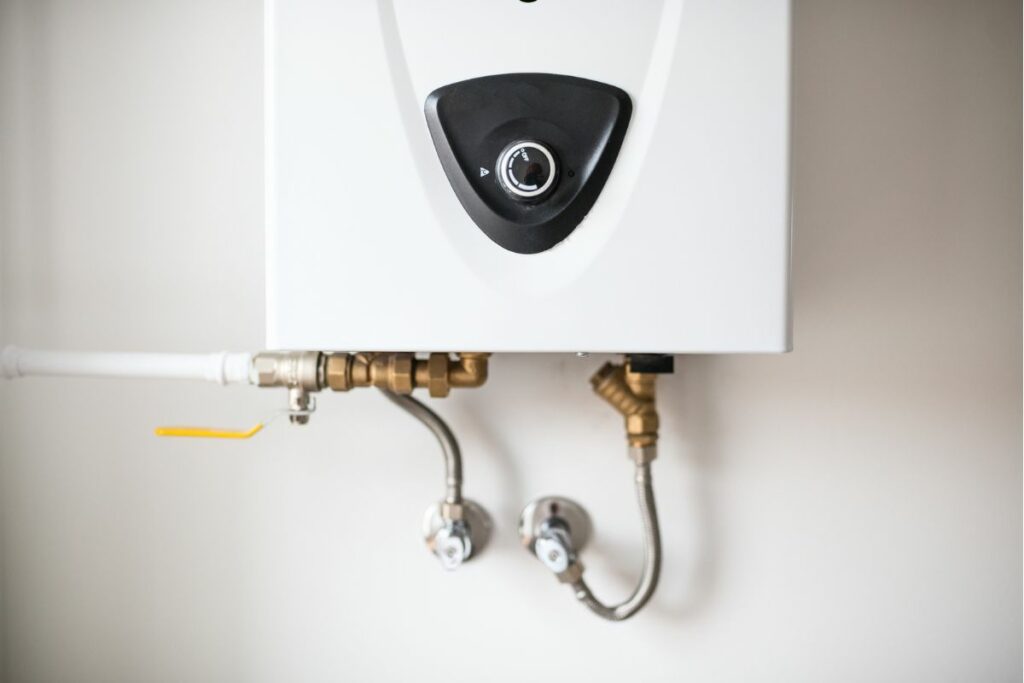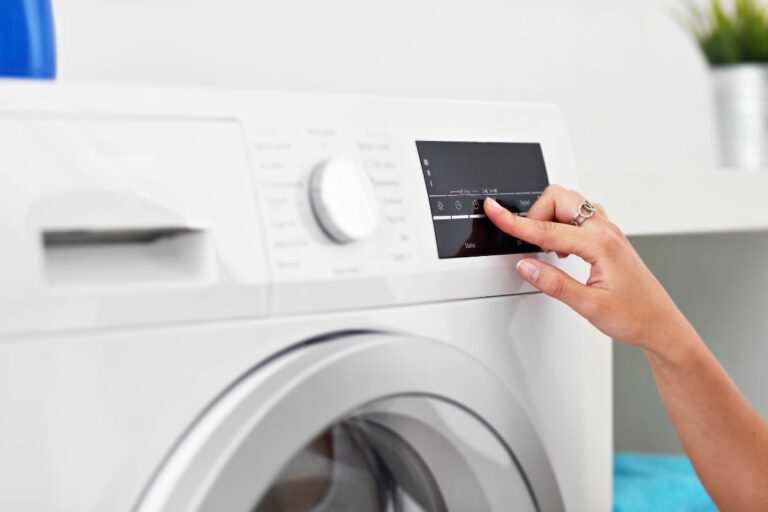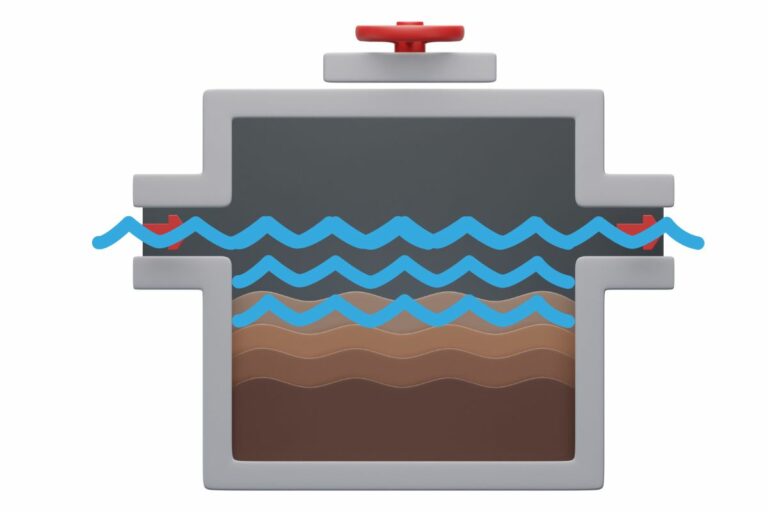Electric Water Heater Makes Lights Flicker? What You Should Know
Have you ever noticed that your electric heater causes the lights in your house to flicker? This is a common problem that several factors can cause. But how to resolve this issue?
An electric water heater will cause lights to flicker due to a faulty heating element or a potential wiring problem to or within the device. Inadequate electrical outlets, loose connections, faulty switches, and improper installation of wires may also contribute to light flickering.
This article will discuss why tankless electric heaters can cause flickering lights in your house and how to prevent it.
We will also discuss the potential dangers of having flickering lights due to an electric heater and how to safely use one without causing any issues.
Diagnosing What Makes Lights Flicker

Light flickering or dimming can indicate an electrical issue, such as a loose wire or faulty electrical device. It can also be caused by a power surge when the electricity coming into your home is more than it should be.
This can cause the lights to flicker and dim. Flickering or dimming lights may also indicate an issue with your wiring system, such as a worn-out connection or poor insulation.
Addressing this issue as soon as it appears is crucial, as it can cause serious safety risks if left unchecked. Not only can it lead to fires, but it can also indicate an overloaded circuit or other electrical issues that could be dangerous.
Furthermore, addressing the problem quickly can help reduce energy costs since light flickering or dimming uses more energy than necessary.
If you are experiencing light flickering or dimming in your home, having an electrician inspect the problem before attempting any repairs yourself is essential.
Why Would a Water Heater Cause Lights to Flicker
Flickering of lights when the water heater comes on is a common problem in many households. It can be caused by various factors, from faulty wiring to an overloaded circuit.
It is essential to identify and address the root cause of this issue to avoid potential safety hazards and further damage.
Some of the significant causes of light flickering while switching on the water heater are as below:
High Electrical Demand
One of the causes of lights flickering when a water heater is switched on is the high electrical demand by the water heater’s heating elements, especially if the lights and the water heater are on the same circuit.
When a water heater is turned on, its heating elements draw large amounts of current from the circuit, causing lights to flicker.
This happens because the electrical load imposed by the heating elements exceeds what the circuit can handle, resulting in voltage fluctuations and flickering lights.
To solve this issue, one should install an additional circuit breaker to reduce the load on the existing circuit and thus prevent lights from flickering.
Issues with the Electrical Circuit or Wiring
Lights flickering when the water heater is switched on can indicate an electrical circuit or wiring issue.
This could be caused by a loose connection in the circuit, which can cause an interruption in the power supply.
This problem is often caused by poor wiring, inadequate insulation, or excessive current flow.
This is especially true if the wiring needs to be updated and properly maintained. To prevent this from happening, it’s essential to regularly check all of your wirings and make sure that any connections are secure.
Power Company Issues
Lights flickering when a water heater is switched on can be caused by power company issues such as low voltage supply.
This issue is relatively common and can be caused by an insufficient power supply from the power company or an issue can cause it with the wiring in your home.
In either case, it is vital to identify the source of the problem to prevent further damage and ensure that your lights remain steady.
So, these were the significant causes of flickering lights. But the question is, can flickering lights cause an electrical fire in your home?
Are there any potential risks of ignoring flickering lights? Let’s understand it in the next section of the article.
Can Flickering Lights Cause an Electrical Fire?
Flickering lights can indicate an electrical issue in your home or business. If left unchecked, it can lead to an electrical fire, which can cause severe damage and even death.
It is essential to be aware of the potential risks and take steps to prevent them from happening.
There are potential risks of ignoring flickering lights in the house. These are:
Electrical Damage to Appliances
Flickering lights can indicate an underlying electrical issue that can cause severe risks and damage to your electrical appliances.
It can even put your safety at risk. Ignoring flickering lights can lead to more severe issues, such as short circuits, power surges, and even fires. Recognizing and addressing the issue before it becomes a bigger problem is essential.
Fire Hazards
Ignoring flickering lights can be a severe safety issue and lead to a fire hazard in your home. These are usually caused by loose connections or faulty wiring and can indicate a potentially dangerous situation.
If left unchecked, the electrical wiring could overheat and cause an electrical fire. It is essential to pay attention to flickering lights as soon as they are noticed to prevent any potential fire hazards from occurring.
Risk of Electrocution or Shock
Ignoring flickering lights can be dangerous as it can lead to the risk of electrocution or shock due to an electrical fault in the wiring or switch.
If these issues are not addressed in time, they can cause serious damage to the electrical system and even lead to electrocution or shock. Sometimes, it can even cause a fire if the problem still needs to be addressed in time.
Can these above potential risks be avoided? Are there any solutions to deal with it? The next section of the article addresses this issue and provides some top solutions to the problem of lights flickering.
Solutions to Fix Lights Flickering
Here are the top solutions to fix the house’s flickering lights. Let’s understand them.
Hiring a Licensed and Professional Electrician
If the cause of the flickering is unknown, it can be challenging to resolve the issue. However, hiring a licensed electrician to inspect and diagnose the issue can help to identify and remedy the underlying cause quickly and efficiently.
A licensed electrician can accurately assess and diagnose any electrical issues in your home or business, including light flickering.
Hiring a professional electrician for inspection and diagnosis ensures that your electrical system remains safe and reliable for years.
Replacing the Water Heater with Lower Electrical Demand
Light flickering can be a sign of an overloaded electrical circuit, which can be caused by a water heater with too high electrical demand.
Replacing the water heater with a lower electrical demand model can help resolve this issue. This solution is especially effective when the current water heater is older and more inefficient than newer models.
Newer models also tend to have features that make them more energy efficient, such as improved insulation and higher temperature settings, which will further reduce the electricity needed to heat the water.
By replacing the existing water heater with lower electrical demand, homeowners can reduce their electricity costs and eliminate flickering light issues in their homes.
Upgrading the Electrical Panel or Wiring
Upgrading the electrical panel or wiring can prevent flickering lights and ensure your home is safe and efficient.
This upgrade involves installing a new circuit breaker or replacing old wiring with heavier gauge wire. It also includes adding new outlets, switches, and fixtures to the existing system to handle more power.
It is also vital to ensure that all connections are secure and up-to-date to distribute power properly throughout the home.
Contacting the Power Company to Check the Voltage Supply
Light flickering can indicate an underlying problem with the power supply. Contacting the power company to check the voltage supply is one of the best ways to identify and resolve this issue.
By doing so, you will be able to determine if there is a fault in the wiring or if it is due to a problem with the power company’s supply.
Additionally, contacting the power company will provide information on maintaining your electrical system and ensuring it runs smoothly and correctly.
With these solutions, you can ensure that none of the lights in your house flicker. If it does so, you already have solutions to deal with them.
Always take professional help while dealing with electricity issues because they can better solve your problem.
Can Other Appliances Cause Lights to Flicker when turned on?
- Pumps
- Electric Dryers
- Washers
- Air Conditioners
- Welding Equipment
When an appliance is turned on, it draws power from the electrical system and can cause the lights to flicker.
This is especially true if the appliance has an immense power draw. Additionally, if an appliance has a faulty connection with your home’s wiring, it can cause the lights to flicker when turned on.
To prevent this from happening, it is crucial to ensure all of your appliances are correctly installed and up to date with current safety standards.
The Takeaway
Light flickering can be a significant issue in many households. It is crucial to identify the cause of the flickering and take steps to resolve it.
The most common causes of light flickering are electrical problems, faulty wiring, or a malfunctioning light bulb. To fix this issue, homeowners should check their wiring and replace any defective components or bulbs that may be causing the problem.
It is important to seek professional help to resolve the issue rather than attempting DIY fixes.
Professional electricians have the expertise and experience to identify and fix the root cause of the flickering lights, ensuring that your home is safe from any potential hazards.
Furthermore, they can advise you on any necessary repairs that may need to be done to ensure your safety and avoid further damage.
Stop the flicker – Fix your lights now!






